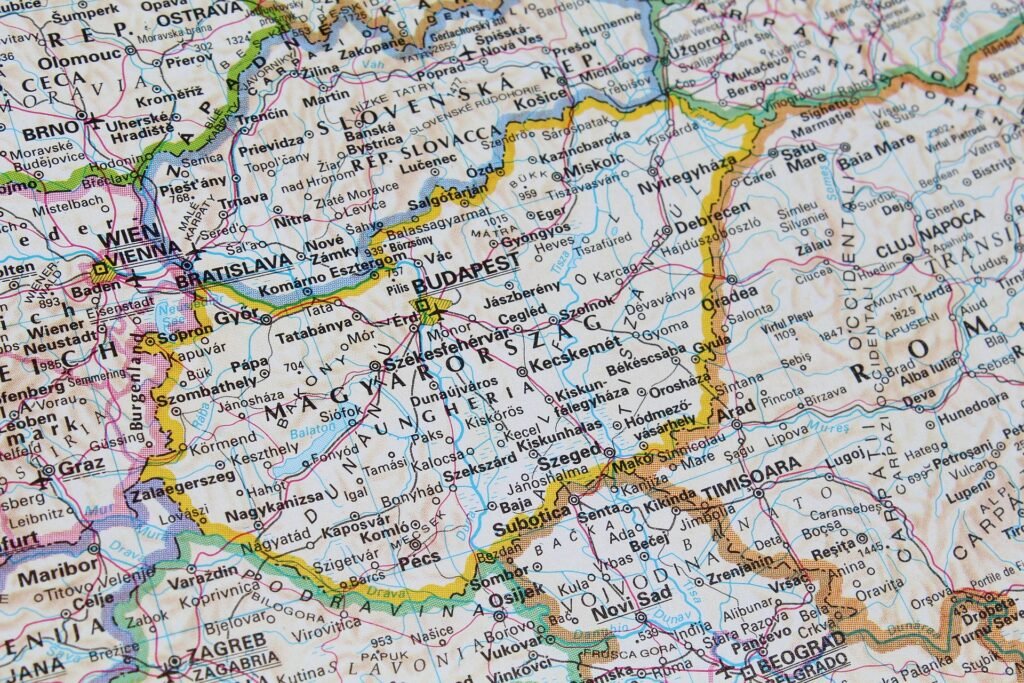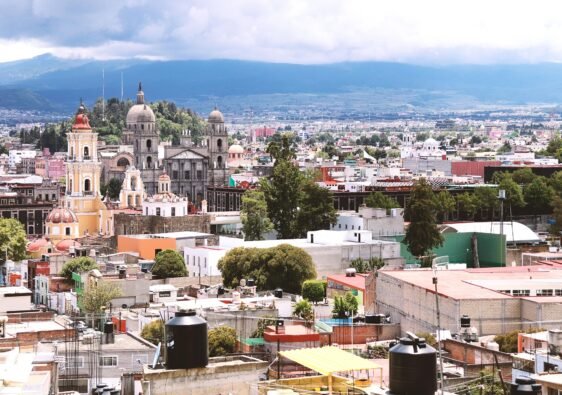
“You’re crazy for giving up your rent-stabilized apartment,” my neighbor said as I loaded my suitcase into the Uber. She wasn’t wrong to be skeptical. I was about to spend six weeks working remotely from three European cities, and if it didn’t work out, I’d be crawling back to Brooklyn with my tail between my legs and $2,800 poorer.
But here’s the thing: my “affordable” NYC studio was eating 47% of my take-home pay. Even with the risk, I had to try something different.
The Breaking Point: When NYC Rent Broke My Budget
Let me paint the picture of my pre-Europe financial reality:
- Rent: $2,800/month for 420 sq ft in Williamsburg
- Utilities: $150/month (summer AC bills were brutal)
- Groceries: $400/month (bodega markup is real)
- Transportation: $272/month (unlimited MetroCard + occasional Ubers)
- Coworking space: $200/month (my studio had zero separation between bed and “office”)
Total monthly burn: $3,822 for basic survival in NYC
My remote work contract allowed location flexibility, but I’d never tested it internationally. The catalyst came when my lease renewal notice arrived: $3,100/month starting January 1st. That 11% increase pushed me over the edge.
The European Experiment: 6 Weeks, 3 Cities, 1 Salary
I chose Central Europe for three strategic reasons:
- Time zones: 6-hour difference meant I could work US hours in the afternoon/evening
- Cost of living: Significantly lower than NYC
- Infrastructure: Reliable internet and coworking spaces
Week 1-2: Prague, Czech Republic
Accommodation: $580 total (Airbnb studio in Vinohrady neighborhood)
- Fully equipped kitchen, 15-minute tram to city center
- Fiber internet: 100 Mbps up/down (better than my Brooklyn connection)
Food: $180 total
- Restaurant meals: $8-15 (incredible Czech cuisine)
- Groceries: $25/week (Tesco and Albert supermarkets)
- Coffee/coworking: $3/day at local cafés
Transportation: $32 total
- 14-day transport pass: $22
- Airport transfer: $10
Coworking: $85 total
- Node5 coworking space: $85/2 weeks
- Unlimited coffee, printing, meeting rooms
Work Setup: Morning routine became: 7 AM wake up, 8 AM gym (included in Airbnb building), 9 AM-12 PM personal time exploring, 1 PM-9 PM work (to match NYC 7 AM-3 PM), evenings free.
This Power Bank Changed the Way I Travel — And Honestly, It Might Be Better Than Yours
Week 3-4: Krakow, Poland
Accommodation: $420 total (Airbnb in Kazimierz district)
- Historic Jewish quarter, walking distance to Old Town
- Dedicated workspace corner with natural light
Food: $140 total
- Polish food is incredible and cheap: pierogi plates for $4
- Weekly grocery budget dropped to $20
- Coworking café meals: $6-8
Transportation: $25 total
- 14-day city pass: $18
- Occasional trams and buses: $7
Coworking: $70 total
- Habitat coworking: $70/2 weeks
- Best community I encountered – weekly networking events
Unexpected Win: Attended a tech meetup where I met two potential clients. One became a $3,500 project three months later.
Week 5-6: Budapest, Hungary
Accommodation: $460 total (Pest side apartment near Parliament)
- Stunning views of the Danube
- Building had a tiny gym and roof terrace
Food: $160 total
- Hungarian cuisine exceeded expectations
- Thermal bath café culture: work sessions at Széchenyi Baths
- Local markets: $22/week for groceries
Transportation: $28 total
- 14-day Budapest Card: $28 (included public transport + museum discounts)
Coworking: $65 total
- Design Terminal: $65/2 weeks
- Government-subsidized space with incredible amenities
The Numbers Don’t Lie: Total 6-Week Breakdown
European Costs:
- Accommodation: $1,460 total ($243/week average)
- Food: $480 total ($80/week average)
- Transportation: $85 total ($14/week average)
- Coworking: $220 total ($37/week average)
- Flights: $680 (NYC→Prague, internal flights, Budapest→NYC)
- Travel Insurance: $89 (6-week comprehensive coverage)
- Miscellaneous: $200 (SIM cards, museums, entertainment)
Total 6-week Europe cost: $3,214
NYC Equivalent (6 weeks):
- Rent: $1,940 (6 weeks of $2,800/month)
- Utilities: $104 (6 weeks of $150/month)
- Food: $276 (6 weeks of $400/month)
- Transportation: $188 (6 weeks of $272/month)
- Coworking: $138 (6 weeks of $200/month)
Total 6-week NYC cost: $2,646
Europe was only $568 more expensive, but here’s what that extra $568 bought me:
- International flights and travel between 3 cities
- Experiences in 3 different cultures
- Professional networking in European markets
- Complete change of environment and routine
- Proof of concept for location independence
Relative Articles
- Flight Delayed 8 Hours, No Lounge Access—These 3 Apps Saved My Sanity and $150 in Airport Food
- I Took My First Solo Business Trip to Mexico City—The Networking Opportunities Were Worth More Than the Conference
- My $2,400 Portugal Work Trip Got Canceled Last Minute—This $23 Travel Insurance Covered Everything
The Productivity Reality Check
Week 1: Productivity dipped 20% due to tourist distractions and timezone adjustment Week 2-4: Productivity increased 15% above NYC baseline (fewer local distractions, better work-life boundaries) Week 5-6: Maintained high productivity while exploring more confidently
Key Productivity Lessons:
- Morning routines matter more abroad – gym/walk before work became essential
- Time zone differences can be an advantage – fewer meeting interruptions during deep work hours
- Change of environment sparked creativity – solved two client problems I’d been stuck on for months
What This Means for Your Career
The Financial Case for Remote Work Travel:
If you’re spending more than 40% of income on rent, temporary relocation becomes financially viable. My break-even point was any destination where I could live for less than $2,500/month all-in.
Professional Benefits I Didn’t Expect:
- Global perspective: Clients were impressed by international experience
- Network expansion: European connections led to two new projects
- Negotiation leverage: Proved location independence to current clients
- Stress reduction: Lower living costs = less financial anxiety = better work quality
The Replication Blueprint
Phase 1: Test Domestically (1-2 weeks)
Start with affordable US cities to test your remote work systems:
- Austin, TX
- Nashville, TN
- Portland, OR
Phase 2: International Pilot (3-4 weeks)
Choose one European base with:
- Strong coworking infrastructure
- Favorable exchange rate
- Direct flights from your home city
- Time zone compatibility with your work schedule
Phase 3: Multi-City Circuit (4-6 weeks)
Once you’ve proven the concept, design routes that minimize travel costs while maximizing experience diversity.
The Plot Twist: I Didn’t Go Back
That six-week experiment convinced me to give up my Brooklyn lease. I’m now based in Mexico City (even cheaper than Europe) and travel to Europe quarterly for client meetings.
Annual savings compared to NYC: $18,000+ Quality of life improvement: Immeasurable
Tools That Made This Possible
Essential Apps:
- Wise (formerly TransferWise) for currency exchange
- Nomad List for city research and coworking spaces
- Google Translate with camera function
- Maps.me for offline navigation
Financial Management:
- Charles Schwab checking (no international ATM fees)
- Chase Sapphire Reserve (travel insurance + points)
- Splitwise for tracking expenses across currencies
Work Setup:
- Portable laptop stand and wireless mouse
- Universal power adapter with USB-C
- Noise-canceling headphones for calls
- Portable monitor (game-changer for productivity)
The Real Talk: What Almost Went Wrong
Week 3 Crisis:
My main client demanded an in-person meeting in NYC with 48 hours notice. I had to book a $1,200 last-minute flight from Krakow. Lesson learned: always budget for emergency flights.
Internet Struggles:
Prague Airbnb wifi died on day 3. Spent $40 on unlimited mobile data as backup. Now I always test internet speed before booking accommodations.
Loneliness Factor:
Working US hours meant limited social time with other travelers. Budapest was when I figured out how to balance work and social networking effectively.
Your Next Steps
Don’t wait for your



